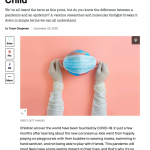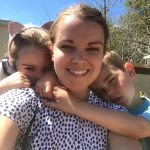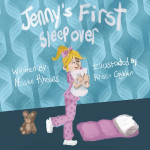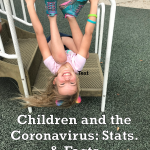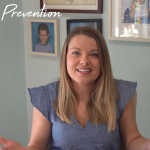Jenny’s First Sleepover – A hit among parents looking to teach their children about vaccine-preventable diseases
Written by Moshe Rhodes and illustrated by Kristin Coghlan, Jenny’s First Sleepover is a fascinating book for children (age 4 and up) that shows the dangers of vaccine-preventable diseases. Here’s the author: As a millennial in the United States, I never really considered that I’d live through a full-fledged pandemic. Outbreaks of plague, smallpox, cholera, and even […]
Children and Coronavirus: Stats and Facts as of 3/12/20
Should you be worried about your children catching COVID-19? I’ve gathered up all of the most recent facts and stats for you right here to let you decide. Complications, as well as the risk of getting the virus, seems to increase with age. Right now the stats say that the majority of COVID-19 cases (87%) […]

